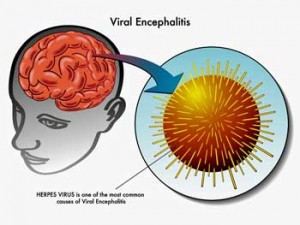

“I think of ME/CFS as one of these (immune-mediated) brain disorders”
Llewelyn King has done over 70 ME/CFS Alert video’s and for his 73rd he interviewed Dr. Mady Hornig. It was a timely interview given the recent immune study she and Ian Lipkin recently published.

How did Mady Hornig get interested in this field, he asked? She said she’s been fascinated by the effects the immune system have on the brain for over twenty years.
With that, let’s take a deeper look at Mady Hornig. She’s the lead author of the recent cytokine ME/CFS study funded by the Chronic Fatigue Initiative. She was trained as a psychiatrist. She’s currently an associate professor of epidemiology at Columbia University‘s Mailman School of Public Health. We know her better as a Director of Translational Research for the Center for Infection and Immunity. That Center, which is also lead by Ian Lipkin, focuses on pathogen surveillance and discovery, and understanding how genes and the environment combine to cause chronic illness such as autism and chronic fatigue syndrome.

The Center For Infection and Immunity specializes in pathogen detection – and chronic immune mediated illnesses.
The Center’s last four publications were on non-primate hepacivirus, African green monkeys and Nipah Virus Disease, ectoparasites in Norwegian rats – .and an immune signature in ME/CFS. In 2014 this group published 22 studies mostly on pathogens you’ve never heard of – and autism; they’re an eclectic group!
According to Wikipedia, Dr. Hornig (an MD) also directs the clinical core of an international effort focused on understanding the role Borna virus disease plays in producing mental illness. She’s also a central investigator in the 75,000 person Denmark Autism Birth Cohort (ABC) project. The ABC project is trying to understand how the large genetic component present in autism interacts with environmental factors (toxins, infections, nutrition, immune status of the mother) to produce autism.
Treatment
Dr. Hornig broke into a big smile when Llewelyn asked if they thought they might be able to come up with treatments to shut down the cytokine up-regulation seen in the shorter duration (< 3 years) ME/CFS patients.
Available Drugs May Be Able to Help with Short Duration Patients
Yes, she said. The shorter duration patients might benefit from three L-17 suppressing drugs. Discovered in 1993, Il-17 is a relative newcomer to medicine science yet three IL-17 suppressing drugs have already been produced. Why? Because IL-17 plays a key role in producing inflammation in autoimmune disorders. It also suppresses the Th1 pathway responsible for killing intracellular pathogens. It revs up the branch of the immune system that causes autoimmune disorders and knocks down the branch that fights intracellular pathogens.
Anything that could impact notoriously hard to treat autoimmune disorders would be a huge win. Two IL-17 reducing drugs have been tested in psoriasis and at least one – Cosentyx™ – has been FDA approved for it.
If their findings stand up a simple biomarker test may be able to differentiate between people who have ME/CFS and those who are simply temporarily worn out could be in sight.
The Longer Duration Patients?
The Hornig/Lipkin paper didn’t have as much for us longer-duration patients. It was fascinating to see that the same elements of the immune system that were up-regulated in the short duration patients were down-regulated in the longer duration patients. The paper called the immune down-regulation in the patients “not substantive” but it was substantive enough, however, for Hornig to suggest that a “premature aging” of the immune system had occurred. At some point she thought immune enhancing drugs might be helpful for long duration patients.
Just finding factors such as cytokines that are causing symptoms can provide relief. If cytokines are the problem– then a cytokine blocker could help out – but the Hornig/Lipkin team wants to go deeper. They want to figure out what’s got the immune system in a tizzy in the first place. For these pathogen experts that probably means an infection and that includes altered microbial populations in the gut.
A Neuropsychiatric Disorder?
Llewelyn asked a great question. Dr. Mady is the Director of the Center for Infection and Immunity but she’s also a psychiatrist and she keeps referring to ME/CFS as a neuropsychiatric disorder (fingernails on chalkboard). Llewelyn asked her what about this psychiatric stuff?

Dr. Hornig has been studying the bad things pathogens can do to the central nervous system for years
Referring to Parkinson’s and Alzheimer’s Disease, Dr. Hornig noted that the immune system affects the brain in many disorders. Personally, I don’t have any issue with ME/CFS described as having a “neuropsychiatric” component. I’m simply not the same person I was mentally or emotionally pre-ME/CFS. Calling it a neuropsychiatric disorder, however, seems to be leaving large chunks of it – such as the PEM out. I can’t believe that the muscles are not involved in this illness.
Dr. Hornig, however, has been dealing digging into the mental aspects of infection for years, however. Wikipedia lists her as having interests in autism, schizophrenia, attention deficit hyperactivity disorder, obsessive compulsive disorders, and mood disorders.
She’s found that pathogens can do weird things to the brain. Her investigations into streptococcus bacteria (Strep) indicated that simply injecting the bacteria into mice caused them to constantly flip themselves up and down and interfered with their learning and memory. Removing the antibodies to the bacteria from their systems caused their behavior problems to stop.
When asked about whether ME/CFS was contagious, Hornig suggested they could find a pathogen that’s triggering ME/CFS early on – but probably not later. If their recent study findings are validated and they can come up with a biomarker, though, it’ll be easier to identify patients early, get them into the lab and catch the culprit in the act.
A couple of years ago she stated a pathogen may cause the immune systems of ME/CFS patients to become hypersensitive to future pathogens. Her latest finding suggests that may be true. The immune system appears to be highly up-regulated in early ME/CFS patients – and then becomes underactive later on. Did it burn itself out over time? Is that what’s going with natural killer and T-cells?
Genetics is also certainly a player. Why nine people recover from infectious mononucleosis while one remains ill is probably, at least in part, due to genetics.
Where should funding go? Given what they found – high levels in so many cytokines early on in the disease – a finding that very much surprised them, she felt funding must to go to immune research. You can support their work here.
- Part II of the Interview is next







Another great article, Cort!
I hope it’s OK to say that, now that the crowdfund for the microbiome study is over (the Microbe Discovery Project), people can continue to donate to Dr Hornig and Dr Lipkin’s general ME/CFS research here:
https://giving.columbia.edu/giveonline/?schoolstyle=5881&alloc=21677
Of course…I added the link to the blog as well.
Thanks, Cort!
…and people can get general updates on Dr Lipkin and Dr Hornig’s research via the Microbe Discovery Project page – not just the microbiome stuff, but all of it:
https://www.facebook.com/microbediscovery
I wonder if they tested anyone who was in relapse though? I have ME for 34 years with two relapses and I have to say that many people with ME don’t really understand what a real relapse is. I am convinced that someone in relapse would have the same results as a patient of under 3 years.
I wouldn’t be surprised…I think that the longer duration subset was probably full of all sort of people as the disorder changed and people changed.
I appreciate your reporting Cort. For some reason I’m finding this one quite depressing. I’m in a crash so maybe that’s fueling it. I don’t like having it classified as a neuropsychiatric disorder. It’s too soon to even put the word psychiatric in any sort of understanding of this disease. It’s too loaded.
I find it utterly depressing that they think nothing can be done for us long term sufferers? And that our personalities have changed?
I’m feeling pretty hopeless with this news for some reason.
And I want to emphasize how much I appreciate you keeping us up to date.
My reaction has nothing to do with your reporting but more to do with feeling I’m stuck in this state for the rest of my life and that there’s nothing I can do to even feel better emotionally.
Don’t feel hopeless! She was talking about the results of just one study. I think the team thinks the answer is going to be in the gut – and they’re doing that study right now.
Check out the recovery stories section of the new (:)) Health Rising Forums. I’ve probably got about ten or fifteen stories up there – and lots more to come. People do get well – in all sorts of ways.
With regards to the neuropsychiatric designation – that P word sends a chill down my spine as well- but that’s Mady Hornig’s gig – she’s one of the few researchers working for us that refers to it that way. She also refers to it as an immune-mediated brain disease. I would try to focus on that.
There some big studies going on – I think there’s reason to be hopeful 🙂
Neuropsychiatric is fine. It’s not too far off.
The broad category is actually
FSS- Functional Somatic Syndrome
Of course you are entitled to your opinion, but it’s not ‘fine’ by me!.
I’ve done a bit of reading since seeing your response.
http://www.patient.co.uk/doctor/somatic-symptom-disorder
Is a resource for doctors in the UK. Included in ‘synonyms) is hypochondriasis.
I followed up one of the referenced studies.
http://www.ncbi.nlm.nih.gov/pmc/articles/PMC2877873/
Which concluded that ‘we report associations between somatic symptoms and genetic variation in two neuroendocrine systems’
In 1992 when I first became ill, my then GP (Family Doctor) had the attitude that my symptoms were all in my head and would only diagnose depression. I really thought we had moved on from there.
I’m happier with neuroendocrine system illness or almost any other recently proposed name than FFS.
Amen to that! I like how you put that and since it affects the neuro AND endocrine system, this is a good name!
Hi I know it’s disheartening as it’s so slow going but keep the faith there will be an answer sooner than we think xx
Cort-thanks much for your reply. Boy did I need to hear that. I’ll check out the recovery stories and also the new forums. Looking forward to it.
I’m in the Stanford studies but haven’t been able to keep up with when they will be published due to a poorly functioning brain of late.
I was spinning into a bad place so I really appreciate your response.
Thanks
Dr. Hornig also said that immune system stimulating drugs might work for people who gave been sick for longer than 3 years.
Yes. Also, I guess Rituximab action, for example, isn’t related to how long you are sick. Even though it might or might not work, it is probably due some other factors.
Again not convinced by this immune stuff. The evidence is still marginal, and if anything suggests only a slight down regulation in longer term sufferers. So given that, why would immune enhancers help?
By the way, immune enhancers made me worse in the early years of my illness. I think they contributed to getting a whole lot of allergies, which went away over time.
Thanks for the article Cort. I found her views a little haphazard.
As I’ve said before, I don’t really care where the “answer” is found. Just want an answer.
I don’t, however, think the answer lies in the gut.
I know I’m a broken record, but I think its the brain / CNS (but acknowledging there will be complexity and all sorts of systemic interactions).That’s where I think the Japanese, and Andrew Lloyd in Australia, are on the right track.
That is, an original insult – viral, bacterial – sends the immune system into a frenzy. That whacks the brain. The immune system calms down, over time, but damage is left to the brain / CNS.
Also, you want hope? I was awful for the first 3-4 years with CFS. Then I got better step by step. I have a family and work full time. I’m 85-90% what I was pre-illness. What frustrates me is I still can’t exercise as I would like. And I do generally need to pace myself. I’m blessed to be comparatively well, but of course I would rather have full health.
Many people do come out the other side like me, some even fully recover.
There’s hope.
I agree. I would like to see more spinal fluid and CPET studies. I think this will lead to objective evidence. The answer doesn’t come from the immunesystem. I don’t believe Mady Hornig is right. Sorry 🙂 It is the other way around.
Good comments in talking consideration of not only duration but up n down severity throughout time..Im guessing they will look at years sick but with more research they will test cytokine responses to see if one is upgraded or down at that time and treat appropriately.
Good point Mike 🙂
So long as they have the test – why not test everyone ?
“….’asked if they thought they might be able to come up with treatments to shut down the cytokine up-regulation seen in the shorter duration (< 3 years) ME/CFS patients."
**************
After 30 years with ME/CFS, I don't believe that the cytokine up-regulation of my illness has become less virulent with time. Without my personal daily regiment of supplements, an amino acid, antihistamines and anti-inflammatories, that help calm my immune response, my immune system is still very, highly over-reactive. I still don't catch colds or flues. I am still ultra-sensitive to alcohol, prescription drugs and chemicals in my environment. I still have to watch what I eat (put in my gut). I still get told that I don't look sick; that I look healthy. I am not frail, or aging rapidly. I don't know if I am an exception to the three year up-regulated rule, but I do not believe my immune system has become any less up-regulated with time.
What about the failure of the Krebbs cycle/mitochondria, is that a result of immune dysfunction or a cause? Falling down frequently and not being able to get back up due to cellular level exhaustion was my first symptom, way before anything else appeared, and I didn’t have a virus (at least I wasn’t symptomatic). It was all PEM, surely down to mitochondrial dysfunction?
Thanks Cort, Always a pleasure to read up on your stuff.
I find this research very interesting, but do wonder how many people were in the original study determining the difference in cytokine levels for recent onset vs chronic folks. I’ve not read the full study (or just don’t remember) that likely lists those factors. My first thought on this issue is that my pro-inflammatory cytokine levels were off the charts high 15 years into this thing. Most all the inflammatory markers were too…..But I believe the Il17 was low normal. So maybe that’s the marker in question. Cognition is out to lunch currently.
It would be so awesome if we had the means to stop the monster in it’s tracks for the new onset folks….they won’t have to endure decades of living hell. News like this eases my worries about the possibility of my girls getting the disease. But hey….it sure would be nice to also get some help for all us old-timers too.
Indeed….
I don’t remember the number of recent onset – but it was not a small number – it was a pretty good sized number if memory serves – I think it was about a quarter of the group perhaps. Alot more longterm patients but a good subset of shorter duration.